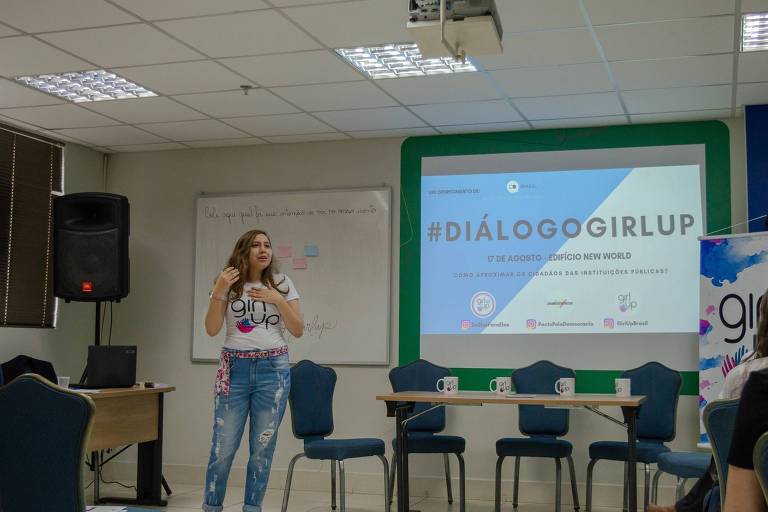In a small town 290 km from Belo Horizonte, Marina Barbosa Ferreira Santos, 19, wakes up at 3 am. Before the rooster starts singing, she gets out of bed to study English. She returns around noon to her house, located in São João Evangelista in the Rio Doce Valley.
The daughter of a Portuguese teacher and farmer, she dreams of attending an American university next year.
In the afternoon, Marina takes care of her sister. At night, she goes back to school. But all day long, she thinks about changing the reality of the girls in town.
At first, she didn't know, but she was already doing politics, or "advocacy" - initiatives that seek to influence public power by focusing on topics the population cares about.
"Politics is not well regarded here, but I have been studying a bit about advocacy. I have been very interested in finding political solutions to what I do," she said.
So she ended up bumping into the UN Foundation.
Two years ago, the young woman launched a series of lectures. She mobilized friends and teachers and began organizing meetings on topics such as migratory movements, human rights, and discrimination.
The meetings with girls in the city of 15,000 also reflect more direct problems in the place where they live, such as the marriage of pregnant teenagers, girls' school dropout, and machismo.
In September, as she searched for information about gender equality, she met Girl Up, a model of girls' clubs created by the UN Foundation in 2010. The girls come together to discuss what affects their lives.
The clubs bring together young people from around the world and were introduced to Brazil in February 2018.
Marina is now preparing to open two Girl Up clubs, one of them in the countryside of São João Evangelista.
On Friday (11), International Girl Day, a date set by the UN in 2012, the first should start working. "I had no idea this could all happen, I just did it because something needed to be done," says the girl.
Translated by Kiratiana Freelon
